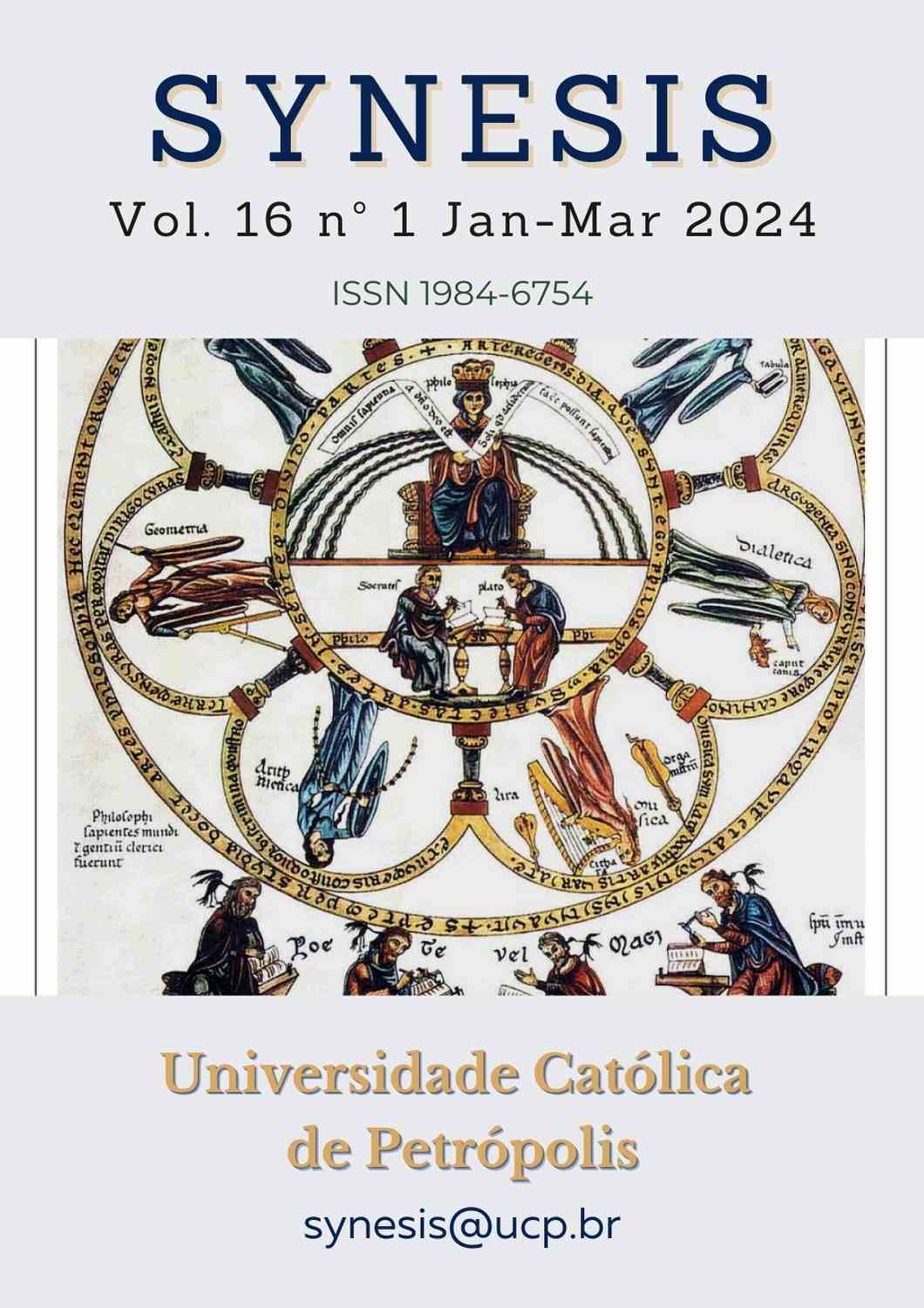Resumo
Este artigo apresenta uma exploração aprofundada das dimensões multifacetadas que envolvem a utilização do ChatGPT no processo de redação de artigos acadêmicos. Com base em entrevistas com 19 editores e gerentes de periódicos, este estudo emprega a metodologia da teoria fundamentada para analisar os dados de forma abrangente, levando à identificação de três categorias abrangentes: oportunidades, desafios e estratégias. No campo das oportunidades, a pesquisa revela o potencial do ChatGPT para aumentar a eficiência da redação de artigos, reduzindo significativamente os custos e agilizando os processos de revisão por pares. Além disso, ela esclarece a capacidade do ChatGPT de fornecer suporte linguístico especializado, beneficiando especialmente os acadêmicos que não falam inglês como língua materna, promovendo a colaboração acadêmica global e elevando a qualidade do trabalho acadêmico por meio de análises mais detalhadas. Por outro lado, o estudo explora os desafios apresentados pelo ChatGPT, principalmente no que se refere a plágio, autenticidade e possível perda do toque humano na redação acadêmica. Ele destaca o dilema ético de distinguir entre o conteúdo gerado por IA e o pensamento original humano. Em resposta a esses desafios, o artigo discute estratégias para a implementação ética do ChatGPT, enfatizando o uso transparente e responsável, a supervisão humana e possíveis medidas legais.
Referências
AlAfnan, M. A., Samira Dishari, Marina Jovic, & Koba Lomidze. (2023). ChatGPT as an Educational Tool: Opportunities, Challenges, and Recommendations for Communication, Business Writing, and Composition Courses. Journal of Artificial Intelligence and Technology, 3(2), 60–68. https://doi.org/10.37965/jait.2023.0184
Alkaissi, H., & McFarlane, S. I. (2023). Artificial hallucinations in ChatGPT: implications in scientific writing. Cureus, 15(2). DOI: 10.7759/cureus.35179
Ariyaratne, S., Iyengar, K.P., Nischal, N. et al. A comparison of ChatGPT-generated articles with human-written articles. Skeletal Radiol 52, 1755–1758 (2023). https://doi.org/10.1007/s00256-023-04340-5
Chapman, A. L., Hadfield, M., & Chapman, C. J. (2015). Qualitative research in healthcare: an introduction to grounded theory using thematic analysis. Journal of the Royal College of Physicians of Edinburgh, 45(3), 201-205.
Charmaz, K. (2014). Constructing grounded theory. sage.
Dergaa, I., Chamari, K., Zmijewski, P., & Ben Saad, H. (2023). From human writing to artificial intelligence generated text: examining the prospects and potential threats of ChatGPT in academic writing. Biology of Sport, 40(2), 615-622. https://doi.org/10.5114/biolsport.2023.125623
Davoudi, S., Fazlzadeh, A., Fallahi, F., & Asgharpour, H. (2018). The impact of oil revenue shocks on the volatility of Iran’s stock market return. International Journal of Energy Economics and Policy, 8(2), 102-110.
Fitria, T. N. (2023). Artificial intelligence (AI) technology in OpenAI ChatGPT application: A review of ChatGPT in writing English essay. ELT Forum: Journal of English Language Teaching, 12(1), 44-58. https://doi.org/10.15294/elt.v12i1.64069
Gao, C.A., Howard, F.M., Markov, N.S. et al. Comparing scientific abstracts generated by ChatGPT to real abstracts with detectors and blinded human reviewers. npj Digit. Med. 6, 75 (2023). https://doi.org/10.1038/s41746-023-00819-6
Imran, M., & Almusharraf, N. (2023). Analyzing the role of ChatGPT as a writing assistant at higher education level: A systematic review of the literature. Contemporary Educational Technology, 15(4), ep464. https://doi.org/10.30935/cedtech/13605
Jerjes, W., Hamoudi, R., & Hopper, C. (Eds.). (2018). The Power of Research: Best Practices and Principles in Research Integrity and Publication Ethics. Kugler Publications.
Johansson, I. R. (2023). A Tale of Two Texts, a Robot, and Authorship: a comparison between a human-written and a ChatGPT-generated text.
Khalil, M., & Er, E. (2023). Will ChatGPT get you caught? Rethinking of plagiarism detection. arXiv preprint arXiv:2302.04335.
Lund, B. D., Wang, T., Mannuru, N. R., Nie, B., Shimray, S., & Wang, Z. (2023). ChatGPT and a new academic reality: Artificial Intelligence‐written research papers and the ethics of the large language models in scholarly publishing. Journal of the Association for Information Science and Technology, 74(5), 570-581.
M. Mijwil, M., Hiran, K. K., Doshi, R., Dadhich, M., Al-Mistarehi, A.-H., & Bala, I. (2023). ChatGPT and the Future of Academic Integrity in the Artificial Intelligence Era: A New Frontier. Al-Salam Journal for Engineering and Technology, 2(2), 116–127. https://doi.org/10.55145/ajest.2023.02.02.015
Mondal, H., Mondal, S., & Podder, I. (2023). Using ChatGPT for writing articles for patients’ education for dermatological diseases: A pilot study. Indian Dermatology Online Journal, 14(4), 482-486.
Nosrati, S., Sabzali, M., Heidari, A. & Sarfi, T. (2020). Chatbots, counselling, and discontents of the digital life. Journal of Cyberspace Studies, 4(2), 153-172. https://doi.org/10.22059/jcss.2020.93910
Sabbar, S.; Masoomifar, A. & Mohammadi, S. (2020). Where We Don’t Know How to be Ethical: A Research on Understanding Plagiarism. Journal of Iranian Cultural Research 12 (3), 1-27. doi:10.22035/jicr.2019.2243.2747
Sabzali, M., Sarfi, M., Zohouri, M., Sarfi, T., & Darvishi, M. (2022). Fake News and Freedom of Expression: An Iranian Perspective. Journal of Cyberspace Studies, 6(2), 205-218. doi: 10.22059/jcss.2023.356295.1087
Sarfi, M.; Sarfi, T.; Aris, S.; Zohouri, M.; Aeini, B. (in press). Religion and Migration: An Iranian Survey. Migration Letters.
Sarfi, T., Nosrati, S. & Sabzali, M. (2021). The new celebrity economy in cyberspace. Journal of Cyberspace Studies, 5(2), 203-228. https://doi.org/10.22059/jcss.2021.93903
Sarfi, T., Nosrati, S., & Sabzali, M. (in press). Trust, Information, and COVID-19 Conspiracy Theories: Cross-Cultural Implications for Crisis Management and Public Health. Migration Letters.
Shackelford, S., Trautman, L. J., & Voss, W. G. (2023). How We Learned to Stop Worrying and Love AI: Analyzing the Rapid Evolution of Generative Pre-Trained Transformer (GPT) and its Impacts on Law, Business, and Society. Business, and Society (July 20, 2023).
Shahghasemi, E., Sabbar, S., Zohouri, M., & Sabzali, M. (2023). New Communication Technologies and the Demise of ‘Natural’ Education. Digitalization and Society Symposium, Istanbul.
Thornberg, R., Perhamus, L., & Charmaz, K. (2014). Grounded theory. Handbook of research methods in early childhood education: Research methodologies, 1, 405-439.
Zohouri, M., Darvishi, M. & Sarfi, M. (2020). Slacktivism: A critical evaluation. Journal of Cyberspace Studies, 4(2), 173-188. HTTPS://DOI.ORG/10.22059/JCSS.2020.93911
Zohouri, M., Darvishi, M., Sarfi, M., Nosrati, S. & Zamani, M. (2021). Google’s University? An exploration of academic influence on the tech hiant's propaganda. Journal of Cyberspace Studies, 5(2), 181-202. HTTPS://DOI.ORG/10.22059/JCSS.2021.93901.

Este trabalho está licenciado sob uma licença Creative Commons Attribution-NonCommercial-NoDerivatives 4.0 International License.
Copyright (c) 2023 Synesis (ISSN 1984-6754)

